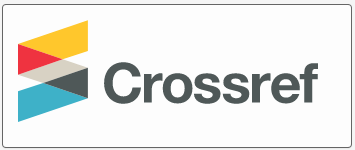For the Symbolics and Semantics of “Fire” in German Phraseologisms
DOI:
https://doi.org/10.52340/idw.2021.510Keywords:
phraseologisms, symbolics, semantics, positive, negativeAbstract
Phraseologisms represent the important and valuable legacy of the nation as they reflect not only cultural and historical ideology, but customs and traditions as well. The given research deals with the establishment of symbolics and semantic context of “Fire” in German phraseological units. German phraseological dictionaries are used as the research object. Fire is a guarantee of improving human lives. It is the symbol of creative energy and destructive force as well. When the fire flame is under the human control it brings warmth, light and kindness. As soon as human reveals less care towards it the fire instantly turns into a dangerous, destructive force bringing death and collapse. Fire has different symbols in different religions. In Hinduism, fire is the symbol of creativity, absolution and demolition, in Islam – birth and destruction, in Buddhism – wisdom, in Christianity it is the symbol of reanimation. Human ensures his/her welfare and safety with the help of fire. Fire is the symbol of native home, native land and family: Das heimische Feuer – native fire/hearth. Fire can figuratively express different emotions. Phraseologisms expressing love are mostly found out: Feuer der Liebe – fire of love. In a figurative way, fire also indicates such human traits as intrepidity, bravery, sympathy, goodwill, hatred, anger, enthusiasm and hope. Figuratively fire also has the mission of increasing the power of trait.
Downloads
References
გამრეკელი, ნ., ჰოფმანი, თ. ქადაგიძე, ნ. (1973): გერმანულ-ქართულ-რუსული ფრაზეოლოგიური ლექსიკონი. თბილისი. განათლება.
ზექალაშვილი, რ. ქირია, ჭ. (2007): გერმანულ-ქართული ლექსიკონი. თბილისი: საქართველოს მაცნე.
Götz, D. u. a.:(2008) Droßwörterbuch Deutsch als Fremdsprache; Langenscheidt-Berlin- München -Wien -Zürich -New York
Duden (Deutsches Universalwörterbuch) (5. überarbeitete Aufgabe) (2003). Dudenverlag. Mannheim. Leipzig. Wien. Zürich.
Duden (2008): Wörterbuch der deutschen Idiomatik. 3., Mannheim: Dudenverlag.
Kempke, G. (1984):Handwörterbuch der deutschen Gegenwartssprache in zwei Bänden. Berlin: Akademie Verlag.
Paffen, K.A. (1980): Deutsch-russisches Satzlexikon. Leipzig: VEB Verlag Enzyklopädie.







